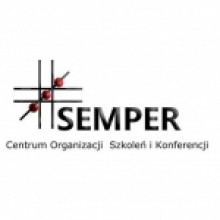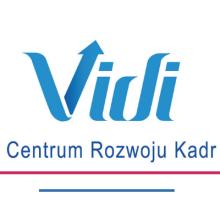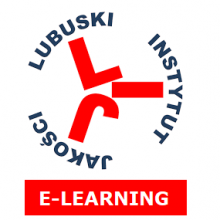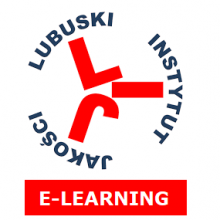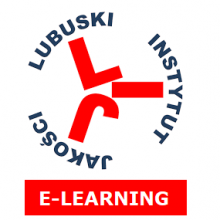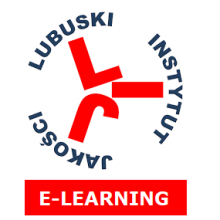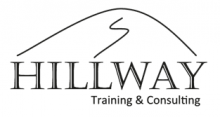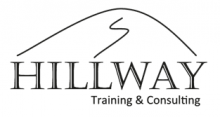

W imieniu ekspertów Centrum Organizacji Szkoleń i Konferencji SEMPER z przyjemnością zapraszamy do udziału w szkoleniu otwartym:
On behalf of the experts of the SEMPER Training Organization and Conference Center, we are pleased to invite you to participate in the open training:
PROJECT MANAGEMENT FOR PRACTITIONERS. 2 -days workshop
Grupa docelowa
Participants
The workshop is dedicated to
• Project Managers or pretending to be one
• Project Team Members
• business owners who order projects
• stakeholders who support projects
• people who participate either in project definition, planning or monitoring and control
Cel szkolenia
Goals
• essential knowledge of project approach and project management principles
• understanding of project management frameworks and practical hints how to implement PM models in real projects
• improved knowledge and skills how to use tools and techniques in starting-up, planning, monitoring and controlling stages
• understanding of project roles and team development soft-skills and tools
• structured and ordered PM vocabulary and knowledge about PM models and frameworks
Korzyści dla uczestników
Benefits
The "PROJECT MANAGEMENT FOR PRACTITIONERS. 2 -days workshop" is very interactive with many examples, discussion,analysis, and hands-on small group exercises.
Metodologia
Szkolenie on-line
Working methods during on-line training:
Metody pracy podczas szkolenia on-line:
Program szkolenia
Program szkolenia stanowi prawnie chronioną własność intelektualną, a jego przetwarzanie, rozpowszechnianie lub korzystanie z niego bez wiedzy i zgody autora jest zabronione.
1. Just a project
2. Introduction to project approach
• goal oriented activity vs. product oriented activity
3. Project simulation
• planning and building a product e.g. a toy following detailed design, requirements and constraints
4. Techniques and good practices
• tasks
o tasks list
o task sequence
• verification and validation
5. project – what’s that?
6. basic concepts and definitions
• basic terms and definitions
• project products vs. project goals
o output – outcome – benefit
• project context
o stakeholders
o business environment
7. discussion and analysis
• goal vs. output and outcome
• goal evaluation
• strategic decisions
8. techniques and good practices
• language of benefits
• SMART
• expectations
• requirements
• product
o vision
o project products
o prototype
• accuracy and credibility of estimates
• baseline plan and change management
9. Project start-up – pre project phase
10. What Project Manager and Project Team should know and what should prepare before a project
• roles and responsibilities during the pre-project phase
• identify strategic goal
o language of benefits
o project vision, tangible and intangible goal
o success factors and criteria
• project stakeholders
o identify needs and expectations
o impact analysis
o engagement strategy
• project product vision
o quality expectations and acceptance criteria
• budget and time constraints
o initial estimates
• identify and analyse previous lessons
• business risk management
o identify risks – threats and opportunities
o analyse risk
o plan risk response
• project appointment in organization
o project charter
o kick-off meeting
11. case study
• business vision
12. techniques and good practices
• language of benefits
• SMART
• product vison – epics and specifications
• stakeholder analysis
o expectations
o impact
• PESTLE
• risk description
• Project Charter
13. strategic project planning
14. in-depth understanding of project scope and project product, strategic scheduling and budgeting, risk response planning
• specify project product
o product breakdown structure
o quality expectations
• project approach
• strategic estimating
• external dependencies and prerequisites
• project organizational structure
o management roles, responsibilities and empowerment
• stakeholder engagement plan
• requirement specification and prioritization
o product vs. requirement
• requirement acceptance
• quality assurance and control
• quality planning
• management and development tasks
• project stages an project lifecycle
o control points and milestones for business decisions,
o operational management and technical perspective
• control points
• task sequencing
o network diagram
• estimation techniques
• task estimating
o resource and workload
o duration
• scheduling
o critical path technique
o inspirations from critical chain
• resource calendar
• schedule presentation
o Gantt chart
o Kanban task table
• uncertainty of a plan – operational risk – threats and opportunities
o identify uncertainty
o time buffers
o risk response tasks
• baseline plan
15. Case study
• design strategic plan
16. Techniques and good practices
• RTM – requirements traceability matrix
• product vision structure
• PBS
• acceptance criteria
• MoSCoW prioritization, spiderweb impact analysis
• project management stages
17. Project is a teamwork
18. How to identify and build team development plan
• project team member vs. HR resource
• team building and development
o from a group to the team
• team development dynamics
o from a group to the team
19. Discussion and analysis
• team members in our projects
20. Case study
• team management strategy - scenario analysis
21. Techniques and good practices
• group development stages by Bruce Tuckman
22. Project execution – stage planning
23. Detailed planning of a project development [delivery] stage
• operational planning of project stage
o planning based on lessons learnt at previous stage
o business value justification
o stage goals, benefits, acceptance criteria
o team tasks and subcontractor work packages
o tasks and activities sequencing
o control points
o schedule and resource calendar
o roles and responsibilities
o risks and risk responses
o stage baseline plan
• task delegating
• progress tracking
o report templates
o dedicated reporting
o control points
o progress report analysis
o forecasts and predictions
o stage retrospective
• risk tracking
o risk owner
o risk status
• corrective and preventive actions
• quality management
• change management
o change budget
• change vs. discrepancy
o update plans
• communication – key tool for PM
o effective meetings
o direct team collaboration
24. Case study
• design stage plan
• plan project meetings
• analyse project report
25. Techniques and good practices
• stage goal and products
• quality criteria
• PBS and WBS
• work package
• milestones
• estimating
• PDM
• critical path
• RACI
• risk analysis – description, risk assessment
• verification and quality inspection [peer review]
• report templates
• effective meeting management
26. Project closing
• clear project account with stakeholders
• plan follow-on activities
• review business benefits
• project evaluation and lessons learnt
27. Case study
• lessons learnt to record
28. Summary
29. Discussion
• what I have learnt, and what I can implement tomorrow
• what to improve, what to avoid
*obrazek usunięto*W przypadku szkolenia w formule on-line modyfikacji mogą ulec forma i sposób realizacji zaplanowanych dla Państwa ćwiczeń.
W przypadku szkolenia w formule on-line modyfikacji mogą ulec forma i sposób realizacji zaplanowanych dla Państwa ćwiczeń.
Informacje organizacyjne
Szkolenie on-line
A few days before the event, we will contact you to ask about your expectations, previous experience and skills, which will allow us to partially adjust the training program to your needs.
Schedule
the training lasts 2 days (12h in total) and you can participate in it from anywhere by joining a virtual conference room using a device with Internet access
Day I
09.00-10.30 - training
10.30-10.40 - break
10.40-12.00 - training
12.00-12.15 - break
12: 15-13.30 - training
13.30-13.40 - break
13.40-15.00 - training
Day II
09.00-10.30 - training
10.30-10.40 - break
10.40-12.00 - training
12.00-12.15 - break
12: 15-13.30 - training
13.30-13.40 - break
13.40-15.00 - training
Access to the virtual conference room will be sent to the e-mail address of the participant 7 days before begining of the training.
Technical requirements: Computer, smartphone or tablet connected to the Internet with a connection speed from 512 KB / sec.
Na kilka dni przed terminem wydarzenia skontaktujemy się z Państwem aby zapytać o Państwa oczekiwania, dotychczasowe doświadczenia i umiejętności, co pozwoli nam na częściowe dopasowanie programu szkolenia do Państwa potrzeb.
Harmonogram zajęć
Dzień I
Godz.09:00-10.30-szkolenie
Godz.10:30 -10.40 -przerwa
Godz. 10.40-12.00 -szkolenie
Godz.12.00-12.15 -przerwa
Godz.12:15-13.30 -szkolenie
Godz.13.30-13.40 -przerwa
Godz.13.40-15.00 -szkolenie
Dzień II
Godz.09:00-10.30-szkolenie
Godz.10:30 -10.40 -przerwa
Godz. 10.40-12.00 -szkolenie
Godz.12.00-12.15 -przerwa
Godz.12:15-13.30 -szkolenie
Godz.13.30-13.40 -przerwa
Godz.13.40-15.00 -szkolenie
Dostęp do wirtualnego pokoju konferencyjnego zostanie przesłany na adres e-mail Uczestnika szkolenia na 7 dni przed terminem jego rozpoczęcia.
Wymagania techniczne: Komputer, smartfon lub tablet podłączony do internetu z prędkością łącza od 512 KB/sek.
Inwestycja
Szkolenie on-line
1580.00zł netto (+23% VAT)
For budgetary units financing participation in the training at a minimum of 70% or entirely from public funds, the VAT rate = ex.
-price includes:
-participation in on-line training
-electronic training materials
-certificate confirming completion of the training (in electronic or paper version)
-consultations after training
-10% discount on all subsequent open and on-line trainings organized by the Centrum Organizacji Szkoleń i Konferencji SEMPER.
Szkolenie stacjonarne1680.00zł netto (+23% VAT)
For budgetary units financing participation in the training at a minimum of 70% or entirely from public funds, the VAT rate = ex.
-price includes:
-participation in training,
-training materials [the participant's own manual, additional materials used during practical workshops]
-stationery [notebook, pen]
-diploma confirming completion of the training
-consultations after training
-Each Participant will receive an individual discount card entitling to a 10% discount on all subsequent open trainings organized by the Centrum Organizacji Szkoleń i Konferencji SEMPER
-coffee and dinner services (does not include accommodation).
Training price with accommodation:
Training price for 1 person with accommodation for 1 night in a single room with breakfast and dinner:
PLN 2130 net (+ 23% VAT)
Dla jednostek budżetowych finansujących udział w szkoleniu w minimum 70% lub w całości ze środków publicznych stawka podatku VAT = zw.
-cena zawiera:
-uczestnictwo w szkoleniu,
-materiały dydaktyczne [autorski podręcznik Uczestnika szkolenia, materiały dodatkowe wykorzystywane podczas warsztatów praktycznych]
-materiały piśmiennicze [notatnik, długopis]
-dyplom potwierdzający ukończenie szkolenia
-konsultacje poszkoleniowe
-każdy z Uczestników otrzyma indywidualną kartę rabatową upoważniającą do 10% zniżki na wszystkie kolejne szkolenia otwarte organizowane przez Centrum Organizacji Szkoleń i Konferencji SEMPER
-oraz serwisy kawowe i obiadowe (nie obejmuje noclegu).
Cena szkolenia wraz z zakwaterowaniem:
Cena szkolenia dla 1 osoby wraz zakwaterowaniem na 1 dobę w pokoju 1-osobowym ze śniadaniem i kolacją: 2130 zł netto (+23% Vat)
Dla jednostek budżetowych finansujących udział w szkoleniu w minimum 70% lub w całości ze środków publicznych stawka podatku VAT = zw.
-cena zawiera:
-uczestnictwo w szkoleniu on-line
-materiały szkoleniowe w wersji elektronicznej
-renomowany certyfikat potwierdzający ukończenie szkolenia (w wersji elektronicznej lub papierowej)
-konsultacje poszkoleniowe
-10% zniżki na wszystkie kolejne szkolenia otwarte i on-line organizowane przez Centrum Organizacji Szkoleń i Konferencji SEMPER.
Zgłoszenie
Aby zgłosić chęć uczestnictwa w szkoleniu prowadzonym przez Centrum Organizacji Szkoleń i Konferencji SEMPER należy uzupełnić formularz zgłoszenia online lub wydrukować kartę zgłoszenia, a następnie po jej uzupełnieniu odesłać faksem (61 6 247 936) lub mailem (info@szkolenia-semper.pl).
Po otrzymaniu przez nas zgłoszenia skontaktujemy się z Państwem maksymalnie w ciągu 2 dni roboczych w celu potwierdzenia rezerwacji.
Kontakt
Contact in English
Dharmesh Kesaria
Business training in English
Centrum Organizacji Szkoleń i Konferencji SEMPER
tel: 731-111-391 d.kesaria(at)szkolenia-semper.pl
Zachęcamy do kontaktu telefonicznego i mailowego.
Chętnie odpowiemy na wszelkie pytania:
Centrum Organizacji Szkoleń i Konferencji SEMPER
SZKOLENIA | KONFERENCJE | DORADZTWO
ul. Libelta 1a/2
61-706 Poznań
Godziny pracy biura: Pn-Pt 08.00 - 18.00
Departament szkoleń otwartych:
tel. 690 059 155
tel. 508 393 926
tel. 577 177 547
tel. 733 544 190
tel. 570 590 060
tel. (61) 3070303
tel. (61) 8102194
tel. (61) 4152036
tel. (61) 4152810
tel. (61) 4152820
fax. (61) 6 247 936
fax. (61) 2 786 300
info@szkolenia-semper.pl
www.szkolenia-semper.pl
Najważniejsze powody, dla których warto wybrać organizowane przez nas szkolenie:
1. Centrum Organizacji Szkoleń i Konferencji SEMPER jest jedną z wiodących firm szkoleniowych w Polsce.
2. Naszym celem jest zapewnienie Państwu elastycznych rozwiązań doradczych i dostosowanych szkoleń w celu osiągnięcia rzeczywistych rezultatów i efektów w pracy zawodowej.
3. Gwarantujemy zajęcia prowadzone przez najlepszych w kraju specjalistów.
4. Liczne referencje i opinie potwierdzają wysoką jakość naszych usług: referencje
POLITYKA RABATOWA
Przy zgłoszeniu 2 -4 uczestników nasza polityka rabatowa przewiduje 10% zniżkę.
Przy zgłoszeniu 5 lub więcej uczestników nasza polityka rabatowa przewiduje 15% zniżkę.
Uwagi
Powyższy program rozwojowy jest również dostępny w formie zamkniętej, wyłącznie dla pracowników Państwa firmy. W przypadku szkoleń zamkniętych zakres tematyczny poszczególnych bloków może ulec zmianie, ze względu na rzeczywiste, zdiagnozowane w ramach analizy przedszkoleniowej oczekiwania pracowników i potrzeby organizacji zlecającej szkolenie. Gwarantujemy wysoką jakość merytoryczną i organizacyjną szkolenia. Aby uzyskać więcej informacji dotyczących zamkniętej formuły szkoleń prosimy o kontakt: info@szkolenia-semper.pl lub zachęcamy do skorzystania z formularza zapytania ofertowego.






